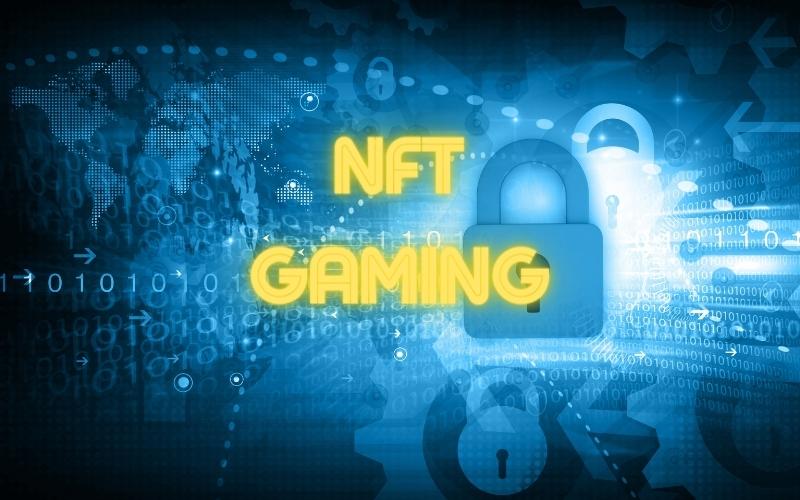It’s become a fact of life that sometimes hackers will cash in on whatever vulnerabilities they find in almost anything, even games. It happens so often that stories like EA revealing large-scale compromises of the accounts of top FIFA Ultimate Team traders become white noise after a while.
Like anything else, NFT-based systems require proper implementation by the developer to be effective against compromise. However, there are certain aspects to using a blockchain to host in-game assets that make them intrinsically robust in situations where a centralized database might prove problematic. Let’s have a look at a few of these examples:
Database Integrity
When a company manages a database, it not only has to protect it from intruders but also must ensure that there’s a redundant copy of the data contained within it somewhere. If the integrity of your database is compromised, you lose a significant chunk (or all) of the data stored within it. To a gamer, this means losing things like assets you’ve purchased using in-game currency or (even worse) your real-life money.
Even in redundant systems, transferring over data from a data source to its destination can be cumbersome and result in unwanted issues, especially if the developer is doing so as part of an update that overhauls the game’s mechanics or inventory management.
If a game adopts NFTs, this becomes less of an issue. Redundancy is everywhere, as all of the nodes in the blockchain have a perfect copy of the ledger. If you screw up during an overhaul, you still have a high-integrity system to rely on in the form of the older version.
So if the developer of your favorite game does an “oopsie!” while it’s trying to do something major, you don’t have to fear losing all of your assets. They can just revert to the smart contract behind the system you’re currently using and try again at some other time or fix it using this as a base.
You Actually Own Your Stuff
When you buy an in-game asset, like a new vehicle, weapon, etc., you essentially get a representation of it that’s not resaleable and possesses no value to you outside of that game in particular. It’s a grouping of pixels that may or may not change the way you play the game, but they’re nonetheless “consumed” the moment you have acquired them.
The moment a game developer decides to hang their boots and shut down the servers, the assets you’ve spent time grinding for go down with the ship, never to be seen again. For every World of Warcraft that ran for a near eternity, there are hundreds of other games that get zapped out of existence and attracted only a niche market that was unique to them in particular (think space simulators until the recent rise of Elite: Dangerous and No Man’s Sky).
If a developer so desires, NFTs present the possibility of giving you total ownership over your game assets. Not only are you able to keep that super-powerful spell-casting didgeridoo you spent several painstaking weeks grinding for but you’re also in a position to transfer its value over to someone else when you feel like you’re bored of the game.
Imagine having assets in a game that you can actually sell without having to use a centralized and heavily-regulated market. Developers that use NFTs allow their players a greater degree of control over their gaming experience regardless of whether that was the overall intention or not.
Developers Don’t Have to Deal With Fiscal Liability
Although in-game stores will never go away, the markets players choose to trade in oftentimes have to be managed by the game developer in a well-regulated ecosystem when using cash to purchase goods.
An example of this is Gaijin’s market for War Thunder and other intellectual properties the company publishes and develops. It only allows people with a Gaijin account to access the market, and purchases can only be done with its own “market” currency called GJN (which has something close to parity with the US Dollar). The extra costs associated with this as well as the convoluted process required to actually get to participate in that market may put off people who otherwise would have wanted to trade some of the premium vehicles and accessories available in that store.
With NFTs, developers technically don’t even have to create this kind of market scenario. They can simply offload the liabilities involved in letting their players trade by allowing exchanges to pick up the slack with their own infrastructures that are specialized for trading these assets in the first place.
NFT marketplaces allow for specialty organizations to essentially do the developer’s job for them. It’s a win-win-win scenario where the devs don’t have to deal with headaches, the organizations facilitating trade can make some profit on transaction commissions, and the players don’t have to go through a rat maze just to buy something they might want to play the game with.
Conclusion
Decentralizing a game’s market through NFTs and offloading control from the developer might sound like something chaotic (and some will swear the NFT market is nothing less but pure chaos), but it presents a level of order that makes your gaming experience more secure and solves many more problems than it conceivably creates.
Digital ownership has been a hotly debated subject for the better part of 50 years (yes, really, that long!), and it looks like NFTs might provide a solution that also guarantees the integrity of what you own. Think long enough about this, and you realize just how remarkable it is!







